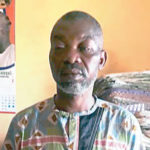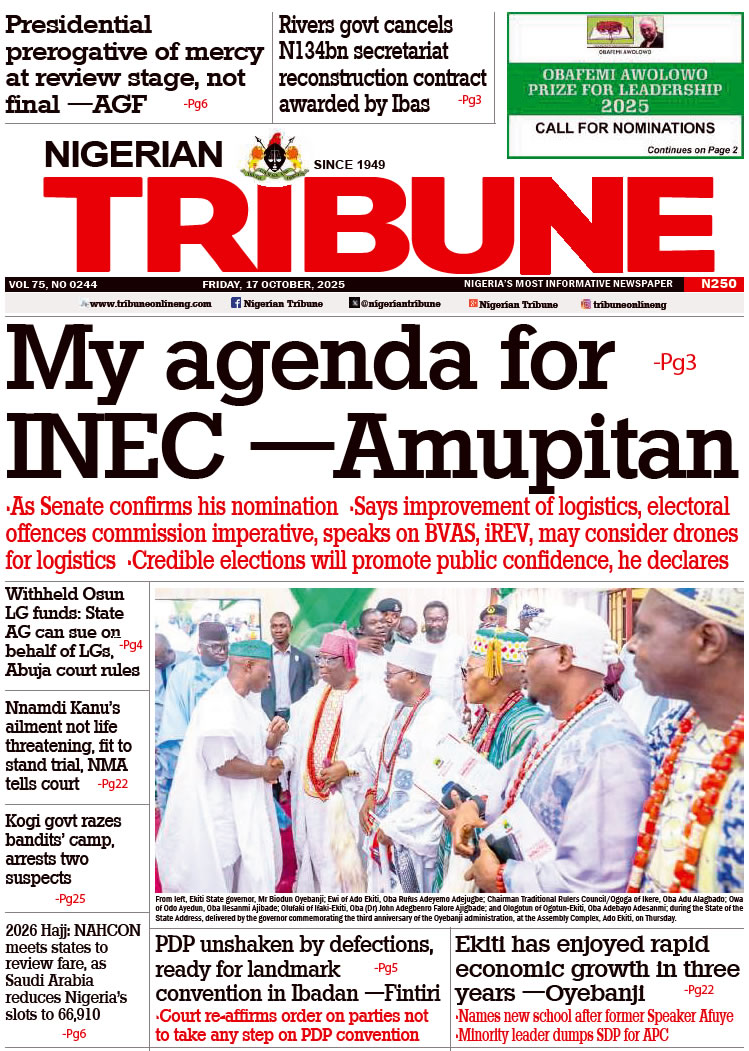Chief Nanna Olomu may be gone for 105 years now but the memories of the merchant governor of the Benin River still live on and are, no doubt, blessings to the locals. The antiquities which partly vividly tell the interesting story of his chequered life are still on display at the Living History Museum at Koko named after him.
For a visitor to the river side small town of Koko, headquarters of Warri North Local Government Area of Delta State, taking time out of a busy schedule to see the exhibition at the historical Nanna Museum is supposed to be the climax of a tour.
Born in 1840 and crowned by the colonial overlords as Gofena (Governor) of Benin River (1885-1894), Nanna faced many trials and tribulations in his resistance to the colonialists, culminating in the Ebrohimi War of 1894. When his original headquarters, deep in the creeks at Ebrohimi fell to the superior fire power of the British, he was detained and tried in Calabar between 1894 and 1895 before his eventual deportation to Accra in 1896.
Situated off the busy Benin-Sapele expressway, the port town of Koko is some 20 minutes drive from the major town of Oghara, headquarters of Ethiope West Local Government Area of Delta State and hometown of Chief James Ibori, former governor of Delta State.
This charming small town which is just over 45 minutes away from the oil city of Warri by road and with its wide slow moving river and creeks offers some good picnic sports and excellent relaxation.
Going down memory lane, the curator of the museum, Mr. Ikhuehi Omokhua said that just one year shy away from 100 years after the war between Nanna and the British imperialists in 1894, the late Dr. Joseph Eboreime who was then the Head of Station, National Museum, Benin was granted a seed fund of $11,000 from the American Social Science Council in 1993 for the documentation of Nanna’s artifacts during the century celebration.
Consisting of very eminent personalities like Deacon Walter Anukpe,a retired permanent secretary in the Old Bendel State, Mr. Emmanuel Omatshola, a director of the Edo State office of the Mass Mobilisation for Economic and Social Recovery (MAMSER), Mr. P.E.B. Uku ,among other prominent Itsekiri sons and daughters, they promptly accepted Eboreime’s initiative for a permanent exhibition to be put in place to commemorate Nanna.

He pointed out that only the palace and priceless treasures of King Nanna still stand out today as solid legacies and memories among Nigeria’s 19th century heroes like King Jaja of Opobo, Oba Ovonranmwen Nogbaisi of Benin, King Pepple of Bonny and Attahiru 11 of Sokoto who had encounter with European colonisers of that significant era. Others have since disappeared into the pilfering pouches of greedy illegal art sellers.
Omonkhua noted that the museum could serve as a boost to help bring Koko out of years of neglect and the infamous toxic waste dump through which it ironically became popular a long time ago into its right place in the forefront of national history, pride and prestige.
Priceless antiquities on exhibition at the museum include a cannon, a Winchester rifle, flower vase, a pendant from George Neville, the founder of Bank of British West Africa (First Bank); staff of office, wooden throne, ceremonial swords, wall clock, custom made brass pots, water filler, a pair of glasses, gold ring, hat, tobacco pipe, a boat, wooden pressing iron, beaded necklace, glazed cankard, a set of chalice with a jug in silver tray, china wares, siphon, decanter, priestly cap, petti coat, breeches, cowries in plate for confession, danger lamp for state canoe, pedestal lamp, among others.
An architectural survey of the building showed that it is square in shape with an open courtyard of about 29.50 metres long and 9.80 metres wide. There is a passage of about 1.44 metres wide between the outer ring of the wall initially built with mud but now rebuilt with cement blocks. This was due to the extensive renovation work embarked upon by Nanna’s children in 1949. The wall hides the courtyard from visibility when one takes a walk through the passage.
While maintaining that there is no doubt that Nanna’s was and still is an architectural piece of traditional design and construction, Omonkhua, a trained exhibition designer recalled that Lord Lugard was once quoted as saying that the palace was “a really wonderful piece of native design and construction.”
Omonkhua disclosed that Dr.Eboreime, the former Director General of the National Commission for Museums and Monuments (NCMM), who supervised the museum project when he was in Benin, was invited because the building was declared a national monument in the ‘70s though the lobby of Ayomike and renowned historian, Professor Obaro Ikime.
Continuing, he added that the need to preserve the priceless artifacts of Nanna within the unique palace became very necessary in view of the old age of Nanna last surviving son (he has since passed on) Robert who acted as the custodian of the artifacts. Robert, who was on the payroll of the National Commission for Museums and Monuments (NCMM) had to be accommodated somewhere.
In the sunset of his life, he alone lived there to pour libations on the inbuilt grave of his famous father. The artifacts were then heaped in two rooms within the palace and as a result of this, the then NCMM.director-general, Dr. Yaro Gella built a three bedroom flat for Robert somewhere in Koko where he stayed. Robert himself should be lionized for not selling the artifacts even after numerous temptations, he even risked his life to protect them.
On the joint collaboration between the NCMM and the community, the curator stated that the erstwhile Vice-President of the Nigerian Conservation Fund (NCF), Mr. Romes Paperoulous instigated an earlier media report on the dilapidating condition of the building itself.
The curator explained that this encouraged the Itsekiri community which was very conscious of the public and their call on the NCMM and were also sympathetic with the financial situation of the NCMM.
“This was the beginning of the joint collaborative strategy which saw the museum contributing more than N2 million to the restoration of the building and the construction of an alternative three bedroom accommodation for Robert, said the curator.
The incumbent Director General of NCMM, Prof. Abba Isa Tijani conceded that museums all over the world depend on Public Private Partnership (PPP) as government alone cannot run them.
Tijani said that it was strictly in line with that, that in 2011, the NCMM set up an Advisory Board and Management to assist the Federal Government to develop the unique museum at Koko .
He assured: «The Commission under my watch is working assiduously to uplift this museum.”
Omonkhua amplified his boss, stating that the museum acknowledged the vigour of a living people capable of resilience, renewal and creative adaptation.
The curator emphasised: «The importance and significance of museums in a multi ethnic society like ours cannot be overemphasised. Museums play a special role in society, preserving historical and cultural materials of all kinds that speak to the general public. They bring people of all walks of life together to learn from the simple and extraordinary things that people have made and used over time.
“These material culture or collections when properly harnessed, preserved and exhibited will go a long way to promote intra and inter personal understanding that can usher in national unity which forms the basis for development.»
In the content of the countries of West Africa, it is possible that the national museum, given its technical capacity might give assistance to anyone in possession of cultural property who could demonstrate the need for it.
Omonkhua stressed that the Koko Museum only shows how localism can be incorporated into nationalism. He skillfully handled the whole issue in such a way that the local history was usually linked up with national and global history.
“Both from the point of the curator and the owner of the history- the Itsekiri, the museum illustrates how localism and nationalism can co-exist,» he said.
The curator reiterated that people stand to benefit from the place as records are kept there and also as a repository of historical research materials which serve as ad memoir of our past history.
Omonkhua maintained that if well packaged, it could give tremendous boost to the tourism industry.
YOU SHOULD NOT MISS THESE HEADLINES FROM NIGERIAN TRIBUNE
Viral Voice Note On WhatsApp Billing False
Claim: A viral WhatsApp voice note, purportedly made by the director and CEO of WhatsApp, claims users will have to start paying for WhatsApp services.
Verdict: The viral WhatsApp voice note claim is a hoax. The content is not new and has been circulated as a broadcast message several times in the past.
Experts Say Mixture Of Snail Slime, Evaporated Milk Cannot Cure Stroke
CLAIM: A Facebook user claims water gotten from snails (snail slime) and peak milk can cure partial or full stroke.
VERDICT: The claim that water gotten from snails (snail slime) and peak milk can cure partial or full stroke is false.
FULL STORY: On July 26, 2020, a Facebook user, Prince Nnamdi Enyinnaya Emelelu Eluwa, in a post claimed that water gotten from snails (Snail slime) and peak milk can cure partial or full stroke. The post which is over a year old has recently been reshared by other Facebook users.
Marburg Virus: What You Need To Know About Disease Recently Detected In West Africa
On Monday, August 9, 2021, the World Health Organisation (WHO) confirmed the first case of Marburg virus in West Africa in Guinea. This development has sent shivers down the spines of West Africans who are still grappling with the effects of the coronavirus pandemic. But before this dreaded disease is greeted by rumours and misinformation, here is what you have to know about the virus.APC states to establish Health Emergency Trust Fund…
FACT CHECK: US Did Not Give Nigeria 48 Hours Ultimatum To Detain Abba Kyari
CLAIM: Several social media posts claim the United States of America (USA) gave Nigeria’s Federal Government 48 hours to detain suspended Deputy Police Commissioner, Abba Kyari, or face severe sanctions.
VERDICT: The claim is false and misleading. The US did not give Nigerian Federal Government 48 hours ultimatum to detain Abba Kyari.
WATCH TOP VIDEOS FROM NIGERIAN TRIBUNE TV
- Relationship Hangout: Public vs Private Proposals – Which Truly Wins in Love?
- “No” Is a Complete Sentence: Why You Should Stop Feeling Guilty
- Relationship Hangout: Friendship Talk 2025 – How to Be a Good Friend & Big Questions on Friendship
- Police Overpower Armed Robbers in Ibadan After Fierce Struggle






